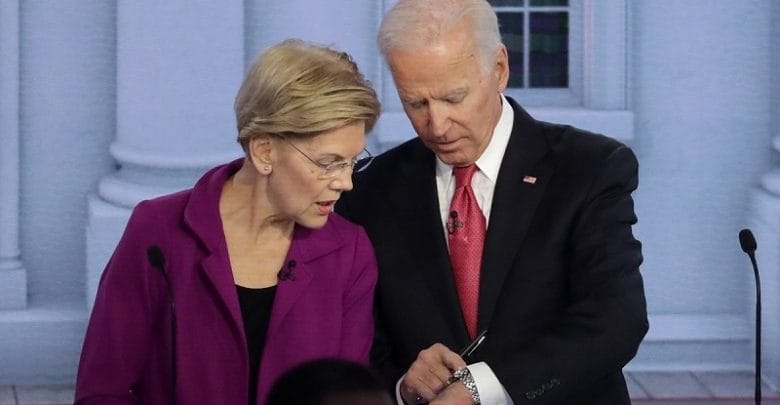
Should Joe Biden Pick Elizabeth Warren as His Running Mate?
The term “veepstakes” should be banished from the English language. Even in normal times, it was a dumb portmanteau—a combination of Washington, D.C.,’s fondness for insider shorthand (Veep, potus, scotus, etc.) and Publishers Clearing House’s exuberant giveaway language. At a moment when a pandemic has killed a hundred thousand Americans and thrown another forty million into unemployment, when the residents of a major American city are rising up to decry yet another black man killed by police, when an American President is attacking efforts to safeguard an upcoming election, and when lawmakers at all levels are unable to meet the demands in front of them—at a time like this, the term betrays our tendency to obsess over the jostling for power, rather than the consequences of its use.
 |
Still, Joe Biden’s pick for a running mate matters. It matters as the first of many hiring decisions that could shape the use of power in his potential Administration. It matters as the selection of his principal surrogate in the campaign season to come. And it matters tactically, in that the choice may turn some voters on and others off. Biden is in a position where every decision he makes for the foreseeable future will be analyzed as either turning toward the left or the center, and his choice of running mate is one of the more visible decisions he will make before Election Day. Biden’s decision is made more important by the fact that he has already signalled his intention to serve only a single term if elected. During the primary season, he also promised to select a woman as his running mate. “The ramifications of Mr. Biden’s choice will be profound,” the Times reported earlier this month. “Even if he loses in November, his decision will all but anoint a woman as the party’s next front-runner, and potentially shape its agenda for the next decade.”
In recent weeks, even as the coronavirus crisis has reduced his campaigning to live streams from the basement of his Delaware home, Biden has held very public tryouts of a number of potential running mates, including the Minnesota senator Amy Klobuchar, the former Georgia gubernatorial candidate Stacey Abrams, the California senator Kamala Harris, the Massachusetts senator Elizabeth Warren, and the governor of Michigan, Gretchen Whitmer. (That’s not an exhaustive list.) Much of the public debate around these potential picks has echoed the electability arguments that plagued the women candidates in last year’s primary process. Then, the question was whether any woman could win the Presidency. Now the debate is whether the Presidency can be won without the aid of this particular woman or that one.
The Times, in its report earlier this month, made mention of the fact that Stan Greenberg, a longtime Democratic pollster, was urging the Biden campaign to pick Warren, the progressive who at one point last year looked poised to run away with the nomination, only to watch her support crumble in the lead-up to the early-voting states. On Thursday, Politico published fuller details of Greenberg’s argument. It’s worth reading, to get a sense of what the Biden campaign is hearing, and how these pitches are being made. Greenberg’s argument makes the case that many on the left have been making since Biden’s strong showing on Super Tuesday spelled the end of Bernie Sanders’s campaign: that he’ll need to consolidate support on the left to win in November—an argument that, as Politico notes, has been bolstered by some recent polling showing that Warren would help Biden with young voters, as well as with black and Hispanic voters. “Earlier this month, [Greenberg] briefed top Biden campaign officials on two battleground surveys conducted by his firm,” Politico reported. “Greenberg addressed the question hanging over Biden and his inner circle: Which vice presidential candidate will help the most in November? The conclusion was blunt: ‘Sen. Warren is the obvious solution.’ ”
